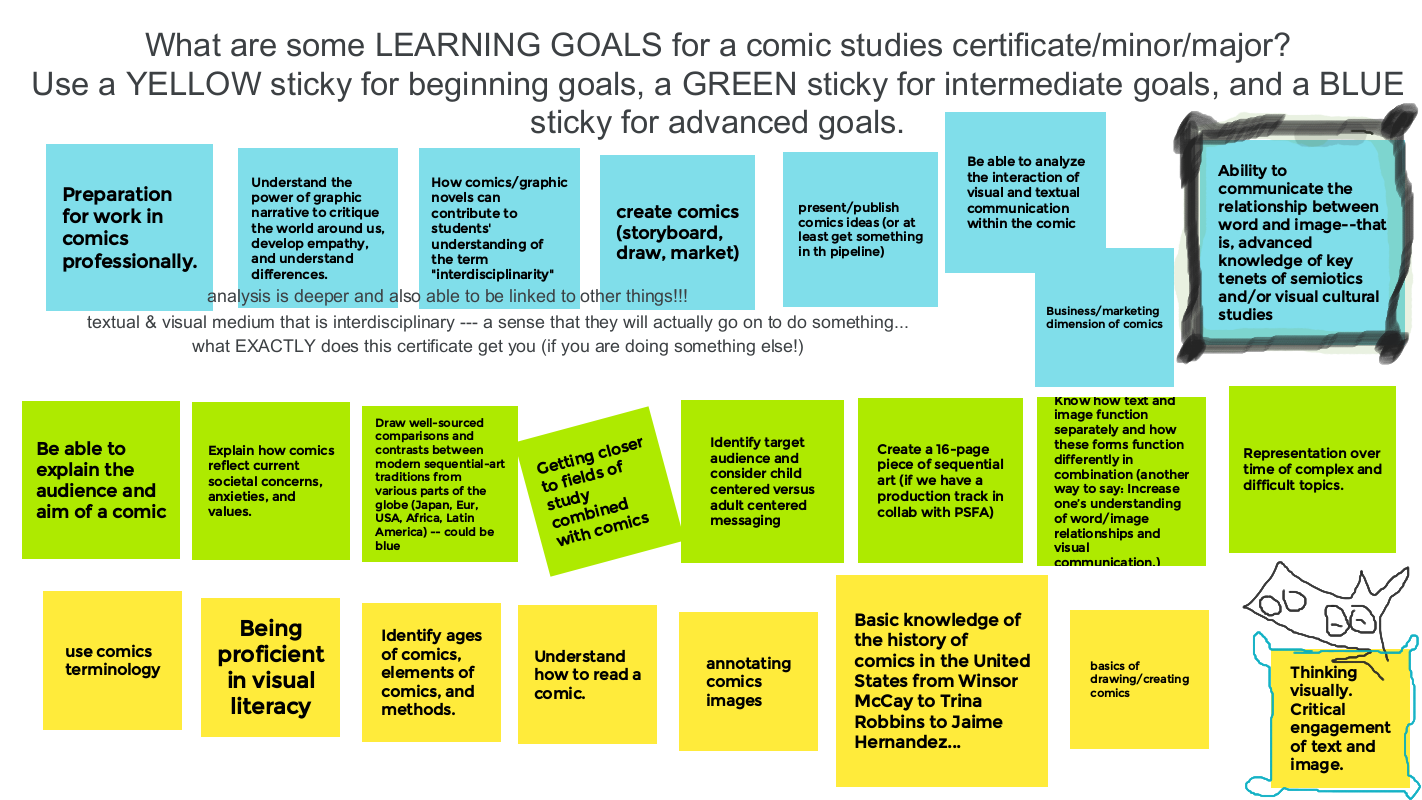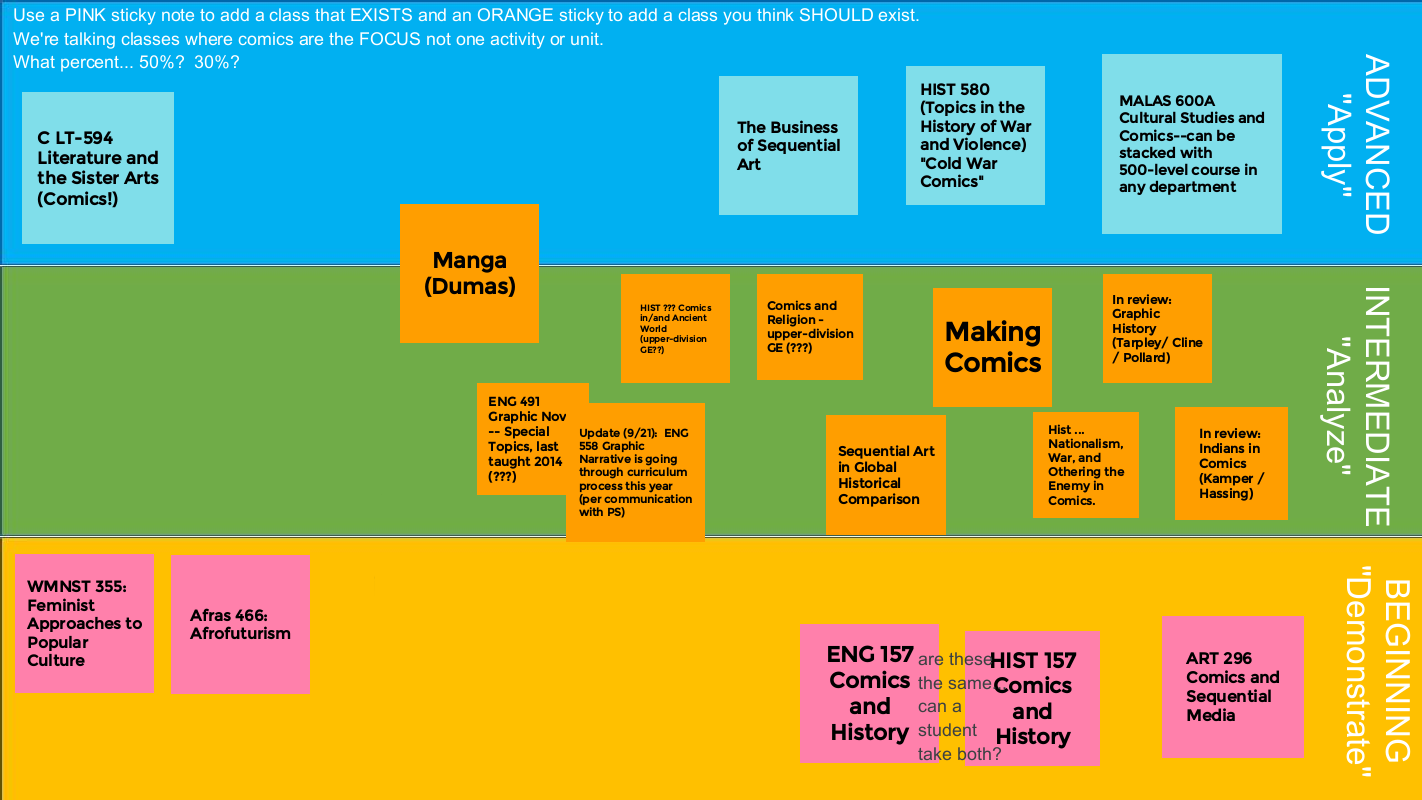
Certificate Program
One aspect of this initiative is the development of a Certificate in Comics Studies. Certificates at SDSU range from 12 to 18 units, or 4 to 6 courses (see list of certificates in the College of Arts and Letters).
The proposed Certificate in Comics Studies will consist of 15 units (5 courses) drawn from nearly 15 comics-focused offerings. HIST/ENG 157 (Comics and History), a general education course fulfilling students’ C1-Arts GE requirement will be the one required course for all students pursuing this certificate.
Students will then choose any four courses from our substantial offerings across the
curriculum. Some of these courses are upper-division courses that require no prerequisites
(for students who want a deep dive into how a discipline explores comics) and others
fulfill GE requirements (e.g. lower-division/foundations and upper-division/explorations
Humanities) for students who want to plot a GE pathway through comics courses.
Courses
The ten courses developed under this initiative will augment the slate of comics-focused courses that are already on the books.
Already-existing comics courses include:
- ART 215 - Visual Odyssey through Comics and Sequential Media (Kendricks);
- HIST/ENG 157 - Comics and History (Pollard, Tarpley, Stout, Nericcio, Thomas, and Howard);
- AMIND 235 – Indians in Comic Books and Graphic Arts (Hassing); and
- HIST 457 - Graphic History (Tarpley).
Courses added to the curriculum in AY 22/23 include:
- AFRAS 475 - Super Black: The Politics of Representation in Comics (Brown);
- ECL 568 - Chicanx Comix: Community, Storytelling, and Social Justice (Nericcio);
- HIST 538 - Comics in Cold War America (Daddis);
- LGBT 550 - Queering Comics (Whatcott); and
- RWS 413 - The Rhetoric of Comics (Jenkins).
And courses in development in AY 23/24 include:
- Religion in/of Comics (Brad Kirkegaard, Study of Religion);
- Manga and Japanese History (Raechel Dumas, History);
- Comics and Race (Michael Dominguez, Chicana and Chicano Studies);
- Avenging the Universe: An Introduction to Environmental Humanities & Comics (Kishauna Soljour, Humanities); and
- Comics for K-12 Teachers (Katie Sciurba, Literacy Education).
Program Learning Outcomes
We’ve begun the process of crystallizing our formal program learning outcomes. One step was a brainstorming session by members of our comics working group in which faculty contributed to two jamboards: one that envisioned a range of potential program learning outcomes and another that graphed those outcomes as beginning, intermediate, and advanced.


What’s Next?
In Fall 2023, we’ll submit the proposed Certificate in Comics Studies to SDSU’s curriculum approval process.